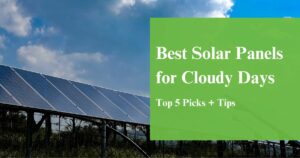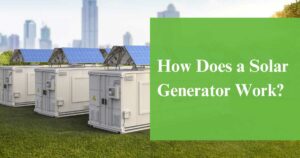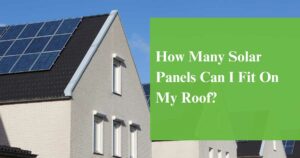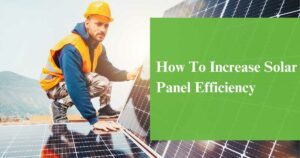Understanding the Fundamentals of Solar Panel Efficiency
Page Contents
Written by qualified solar engineer Leonardo. Last updated:
Typical solar panel efficiency ranges from 15% to 20%, and the most efficient solar panels commercially available are slightly above 22%. Some laboratory prototypes have reached efficiency values over 40%, but they are still very expensive and not viable for commercial use.
In simple terms, solar panel efficiency can be described as the conversion rate from sunlight to electric power. If solar panels from many brands are exposed to the same sunshine, the ones with the highest efficiency will produce the most kilowatt-hours per day.
The efficiency of solar panels is often misunderstood, and a value of 20% may seem small when some natural gas power plants are above 50%. However, there is an important difference:
- Fossil fuels must be purchased, and they produce emissions when burned.
- Sunlight, which allows a solar panel to function, is free and clean.
What Does Solar Panel Efficiency Mean?
The solar panel efficiency describes how much sunlight is converted into electricity. For example, if you place a panel that is 20% efficient under 1,000 watts of sunshine, it will produce 200 watts of electricity.
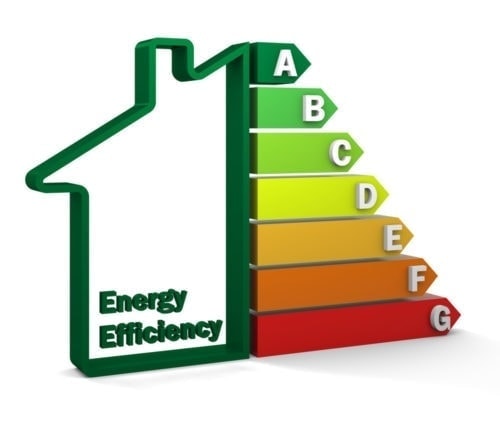
In this case it may seem that 800 watts are being wasted, and solar panels often get criticism for their low efficiency. However, consider that all 1,000 watts of sunlight were being wasted before! It would be more correct to say that solar panels obtain electricity from an abundant resource that is otherwise wasted. The outlook for fossil fuels is very different, since all inefficiencies result in wasted fuel, operating expenses and greenhouse gases.
You can use solar energy even if your panels are at the lower end of the efficiency scale. In fact, a lower efficiency often makes the solar system more affordable, and you may get a shorter payback period. If your panels are from a quality brand and covered by solid warranties, your project can be successful even with modest panel efficiency.
What Is the Average Solar Panel Efficiency?
As of 2019, the average solar panel efficiency is from 15% to 20%, but consider that some manufacturers have panels that fall outside this range. The SunPower brand has the current solar panel efficiency record among commercial products, at 22.8% conversion efficiency from sunlight to electricity.
Solar efficiency is provided by manufacturers along with panel specifications. However, you can compare them more easily by looking for a solar panel efficiency chart from a trusted source, such as the National Renewable Energy Laboratory (NREL).
Energy efficiency gets a high priority when deciding if solar panels are worth it. However, keep in mind that a higher efficiency often comes with an increased price. In this case, you must make sure that the additional savings compensate the additional costs.
- A good recommendation is asking solar companies to provide a financial analysis along with their proposals.
- The solar panels that achieve the highest return on investment and the shortest payback period will not necessarily be the most efficient ones.
When comparing your options, also make sure you are looking at solar panel efficiency 2019 data. Manufacturers are constantly investing in research and development, to improve the efficiency of their solar cells.
How to Calculate Solar Panel Efficiency?
Solar panel efficiency is calculated with a set of Standard Test Conditions (STC), which are used by the entire solar industry. They are tested in laboratory conditions, with a light source that provides 1,000 watts per square meter, and a solar panel surface temperature of 25°C. Also, the test light source must closely replicate sunlight that has moved through the atmosphere.
When solar panels are installed on homes and businesses, the site conditions differ from the idealized lab conditions. As a consequence, the actual efficiency achieved by solar panels differs from the laboratory efficiency. However, the standard efficiency rating is very useful to compare solar panels under equal conditions.
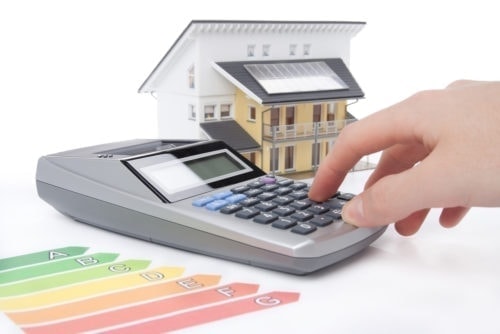
Solar panels can also be tested under other conditions called NOCT, which stands for Nominal Operating Cell Temperature. These conditions are designed to simulate a typical project site:
- A light source that provides 800 watts per square meter.
- An air temperature of 20°C with a speed of one meter per second.
- The panels are mounted with an open back side, to allow air circulation.
The NOCT efficiency test considers factors that are ignored in the STC test. However, keep in mind that both are reference values for panel efficiency. To know the exact performance that solar panels can achieve in your property, you must get a professional design that is based on a site assessment.
How to Increase Solar Panel Efficiency?
Solar panels have become more efficient as the manufacturing technology for solar cells has evolved. This factor is beyond the control of the homeowners and businesses who use the panels. However, smart design decisions can also improve the efficiency of a solar energy system.
The solar panel angle efficiency loss is a very important factor during the design process. The orientation of solar panels affects efficiency, and electricity production is increased when they are placed optimally:
- Solar panels that receive sunlight head-on produce more electricity that those getting sunshine at an angle.
- Ideally, the panels should have an orientation that maximizes efficiency in the presence of direct sunlight.
Solar companies use several software solutions that calculate the solar panel angle for maximum efficiency. If you live in the northern hemisphere, the south-facing side of your roof will typically get the most sunshine, unless an obstacle is casting a shadow. For countries in the southern hemisphere, the north-facing side of the roof is preferred.
Ground-mounted solar panels have more flexibility with respect to their orientation. Solar companies can calculate the exact angle that maximizes electricity production, to adjust the racking accordingly.
Working with a qualified solar company is important, since the installation quality is just as important as the solar panel quality.
References
- Best Research-cell Efficiency Chart – NREL
- Solar Performance and Efficiency -Department of Energy
We hope you liked this article. Please rate it or leave us a comment.
Average rating 4.9 / 5. Vote count: 11
No votes so far! Be the first to rate this post.

